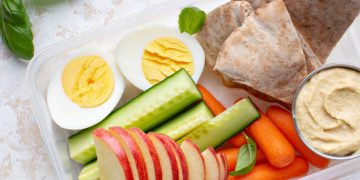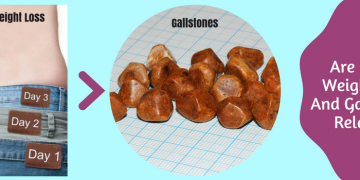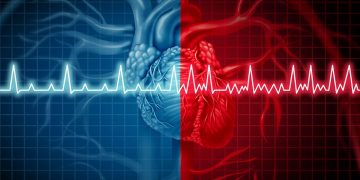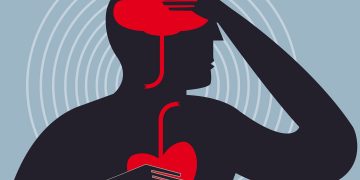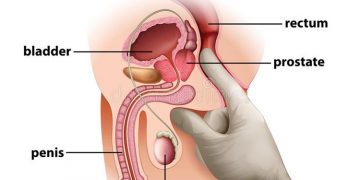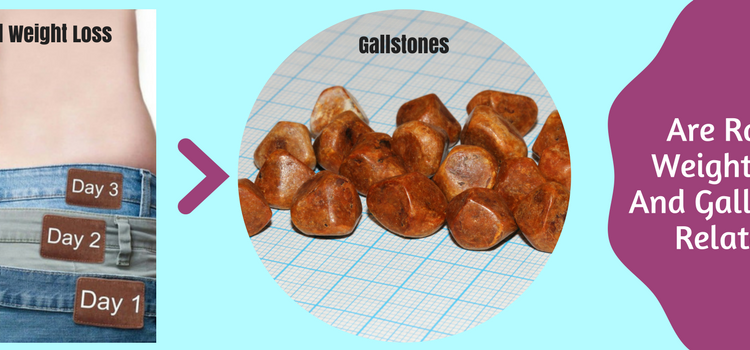Gallstones are rock-hard stores that foster in the gallbladder, a little organ in the upper right mid-region just beneath the liver. Gallstones can be so little they’re scarcely noticeable, or as extensive as a golf ball. They can exist independently or in large numbers. What’s more, they can be asymptomatic or unbearably difficult.
Gallstones are framed when bile, which supports the processing of fat, contains a lot of cholesterol or bilirubin and insufficient bile acids or lecithin (substances that permit water-and oil-based fluids to blend). Cholesterol gallstones are the most predominant sort, however, stones produced using bilirubin (called “shade gallstones”) are additionally normal.
Heftiness can prompt gallstones since it “modifies the equilibrium of cholesterol versus lecithin versus bile acids in the gallbladder. An overabundance of body weight additionally makes it harder for the gallbladder to exhaust, and this permits cholesterol-rich bile to aggregate and solidify into stones.
Step-by-step instructions to Lose Weight Safely to Reduce Your Risk of Gallstones
Losing overabundance weight is a dependable method for decreasing your gamble of gallstones. Most specialists concur that sluggish, consistent weight reduction is desirable over crash counts calories, which is particularly significant with regards to gallstones. Fast weight reduction, meaning at least 3 pounds (lbs) each week, can set off gallstones for similar reasons as corpulence — it modifies the equilibrium of cholesterol, lecithin, and bile acids, and keeps the gallbladder from discharging enough.
Individuals who have had bariatric medical procedures are prime contenders for gallstones since they will generally lose a lot of weight in the initial three to a half years. The kind of medical procedure doesn’t make any difference, on the grounds that the weight reduction hastens stones instead of the genuine medical procedure.
Gallstones are such a typical event after the bariatric medical procedures that patients are regularly given ursodiol, a medicine that forestalls stone development by diminishing cholesterol creation and dissolving it in bile.
Weight reduction of ½ to 2 lbs each week is a decent objective for the vast majority. Unassuming weight reduction not just forestalls gallstones, it additionally energizes new propensities that can assist with stopping losing and recovering weight over and again — and weight cycling is another gamble factor for gallstones.
With regards to gallstone anticipation, the kind of food you eat doesn’t exactly make any difference; the significant thing is to abstain from eating excessively. That being said, very low-fat weight control plans are not an extraordinary thought since they restrain gallbladder constrictions, making it harder for the gallbladder to exhaust and permit bile to collect and calcify as opposed to being delivered into the small digestive tract.
Weight reduction is best accomplished with expanded action and a reasonable eating routine that doesn’t leave you feeling eager, exhausted, or denied. A modified eating plan joined with these craze-safe techniques will assist you with accomplishing your objectives:
- Plan your feasts ahead of time, particularly while eating out. Menus are frequently posted on the web, which makes this much simpler.
- Keep a food diary. Individuals who log all that they consume in the span of 15 minutes of eating lose more weight than the people who either don’t keep a diary or who hold on to record their entrances.
- Make a record (on the web or printed copy) of your number one low-calorie recipes, and attempt to continuously have a reserve of key fixings in your cooler or pantry.
- Keep sound, low-calorie snacks in your home, office, vehicle, pack — any place! This will assist you with keeping focused when the munchies hit and the main thing around is unhealthy food.
- Recognize and address “triggers” for unfortunate eating. This might be pretty much as straightforward as moving a treats dish off your footstool or as trying as making quick work of why you eat when pushed or exhausted.
- Eat until you’re fulfilled, as opposed to until you’re full. Assuming you eat gradually and carefully, you’re more averse to indulging in light of the fact that it takes around 15 to 20 minutes for your mind to enlist that your stomach is full.
- Do whatever it takes not to perform various tasks while eating. Switch off the TV, shut down your PC, and don’t accept or settle on decisions during feasts. Conversing with feasting sidekicks is A-OK, obviously — you can’t (or shouldn’t) talk and eat simultaneously, so a decent discussion can assist with broadening the supper time and forestall indulging.
Ensure you get sufficient rest. Lack of sleep sets you up for weight gain by expanding hunger and diminishing your capacity to oppose solace food sources.
At last, don’t anticipate being great. Stuff occurs, and you can’t necessarily in all cases control what, where, and how you eat. A periodic additional piece of pizza or a habitual slouch day won’t destroy your weight reduction endeavors or result in an unconstrained gallstone. Simply attempt to gain from the experience so you can keep it from reoccurring, and afterward return right once again to your good dieting and exercise plan.





















